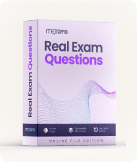AAFM CTEP - Chartered Trust & Estate Planner (CTEP) Certification Examination Exam
Page: 1 / 95
Total 472 questions
Question #1 (Topic: Topic 1)
Estate Tax in India is _______
A. Nil
B. 10%
C. 30%
D. Tax Rate depends on the estate value
Answer: A
Question #2 (Topic: Topic 1)
Estate tax is also called ________
A. Succession Tax
B. Voluntary Tax
C. Involuntary Tax
D. Transfer Tax
Answer: B
Question #3 (Topic: Topic 1)
________ plan involves only Business assets.
A. Financial
B. Succession
C. Estate
D. Contingency
Answer: B
Question #4 (Topic: Topic 1)
Estate planning has _________ steps.
A. Two
B. Three
C. Four
D. Five
Answer: D
Question #5 (Topic: Topic 1)
The goals of Estate Planning can be broadly divided into_______ categories.
A. Two
B. Three
C. Four
D. Five
Answer: A
